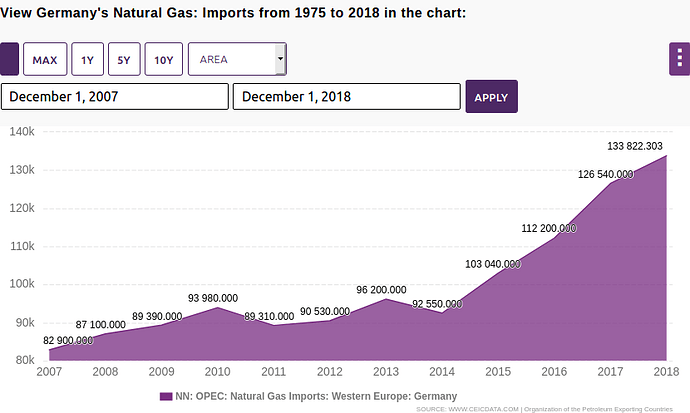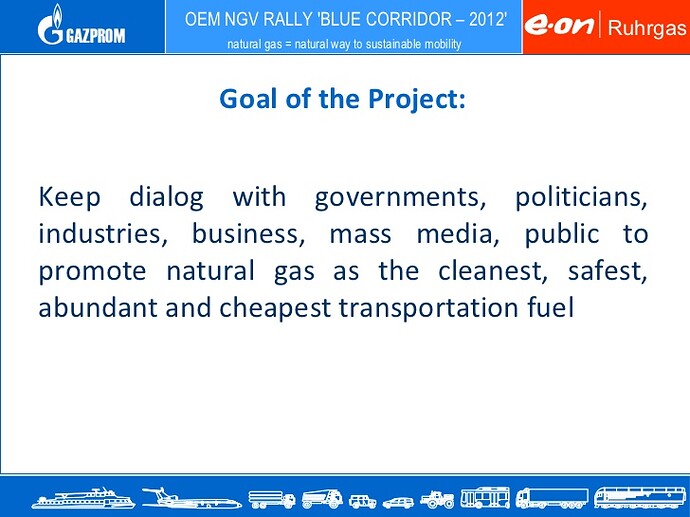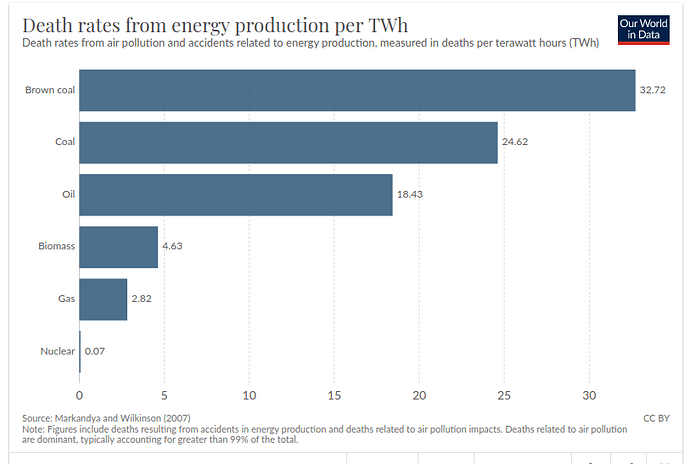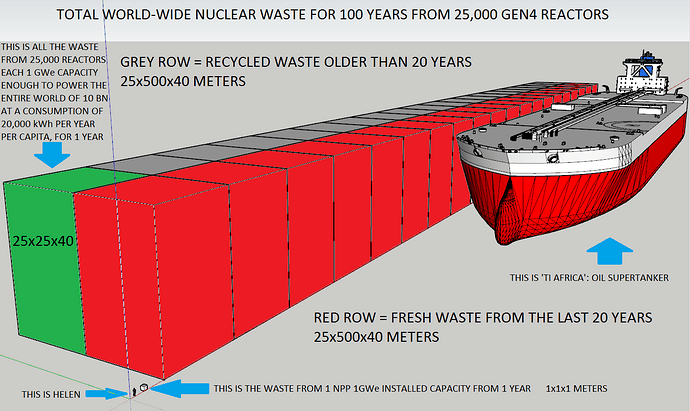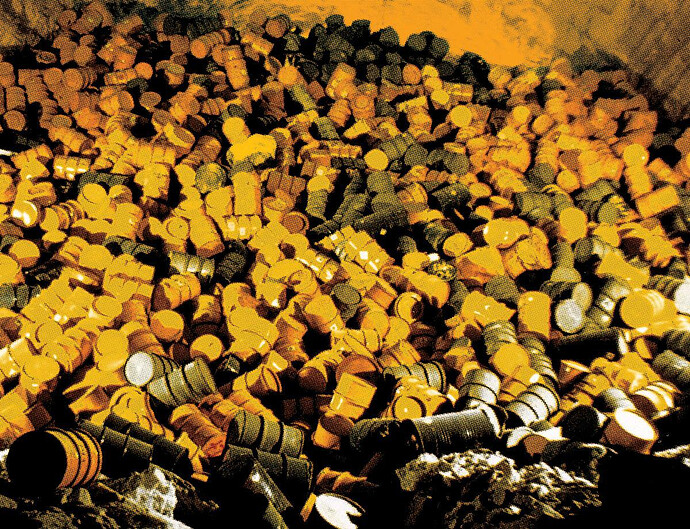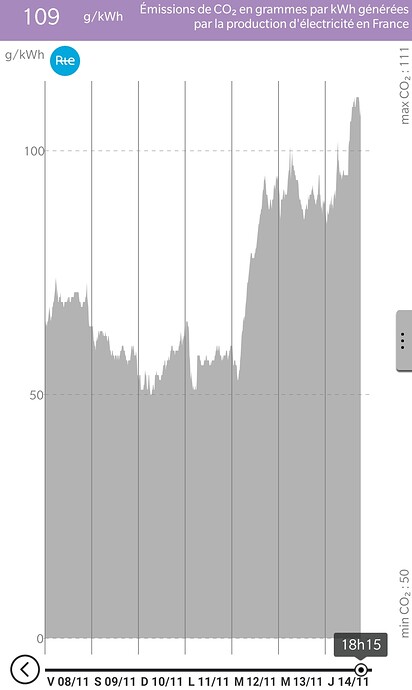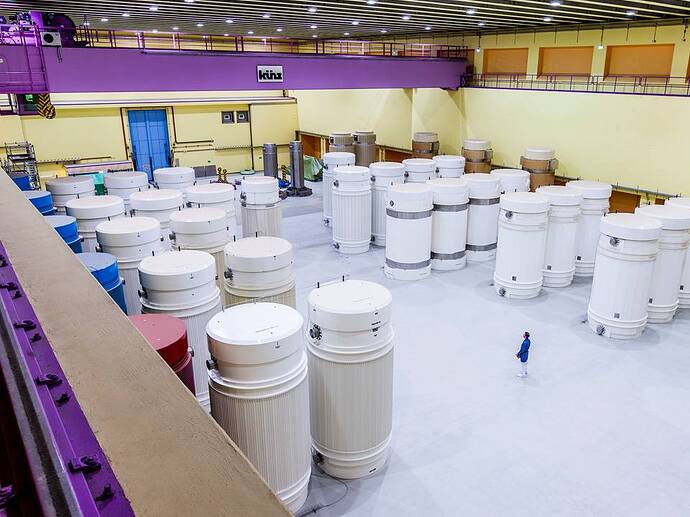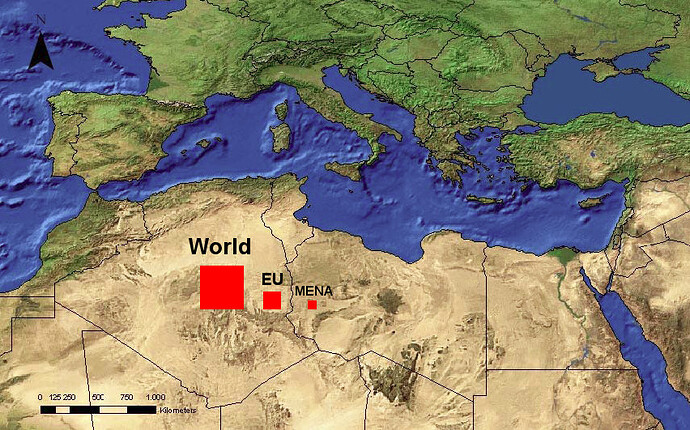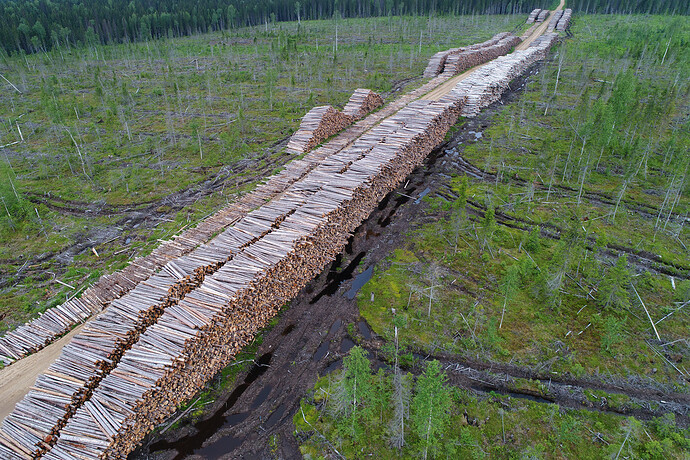Yes, this is correct as a static fact. But is at most an argument for not giving priority to closing existing nuclear plants. Since about a year, even with standard economic criteria, for new investments renewables outclass nuclear.
There are more documented texts, but I would have to search for them. The gist of this question is given in this link : Nuclear energy too slow, too expensive to save climate: report
According to even quite optimistic models, to go 80% renewable you need energy storage as big as the overall energy output of the country.
Now, if we take Australia as an example, their much celebrated Tesla battery farm has capacity of 129 MWh. Total power output of Australia is 6 PJ or 1’700’000 MWh (Germany’s total hydro power storage capacity is 3% of its energy production by the way).
Can you propose any viable scenario for increasing the storage capacity by a factor of 12’000 in a few decades (and that’s just one country!), especially that it requires increasing supply of rare earth metals required for both wind, solar and battery storage by 3000-87’000%?
P.S. have you read Limits to Growth? What do you think about their predictions? Would you say that solar and wind industry is exempt from these models and still able to increase its output by thousands of percent?
Regarding the WNISR article:
“To protect the climate, we must abate the most carbon at the least cost and in the least time,” Schneider said.
Talking is easy, but while Germany is closing nuclear reactors, their natural gas imports as increasing fast, not decreasing, apparently because they have no storage to replace it with renewables. And they won’t have because of the physical supply constraints described above. This trend is precisely what I’m concerned about, not their emissions today or tomorrow. In 20-30 years we are going to use more fossil fuels than today because of the completely irrational shutting down of perfectly safe and operational nuclear reactors precisely at the time when we need them most.
And I think fossil fuel companies realise that very well and this is precisely why they are increasing investments into natural gas production. More than that, they are actually marketing natural gas as “green fuel” - and the society seems to be buying it!
Near the end your first link Geophysical constraints on the reliability of solar and wind power in the United States says :
“All of these studies share common ground. They all indicate that lots more wind and solar power could be deployed today and this would reduce greenhouse gas emissions. Controversies about how to handle the end game should not overly influence our opening moves”
We are not near 80%. The relative strength of different sources evolve rapidely. No single type of source should reach 100%. At this moment, investing in renewables appears optimal.
Certainly we can and should get more renewables, especially in countries like US or Poland (my country of origin), which are beyond any comparison.
Future looks bright, not only with wind and solar, but also ITER, which goes “first plasma” in 2025. The problem is the emissions over the next 20-30 years, which will decide the speed of the climate change.
If you don’t just cherry pick from the referenced articles, you will certainly see that we can’t physically decarbonise to the levels and time frame required to stop climate change using just renewables, and activists who caused closure of existing nuclear plants actually did much more harm than good.
Welcome, @kravietz!
This is a relevant discussion. I am taking the liberty of moving it to its own thread within the Lab’s forum. ![]()
Hi,
In my opinion closing nuclear in Germany was bad from a CO2 perspective, but sort of necessary politically. Public trust in the operators was low, and they messed up so bad that the whole spectrum of political parties dropped them.
Had they been safe I am sure that Allianz or Munich Re or similar would have privately piped up and said they’ll insure them for a competitive rate. Alas here we are. Even if we had a hefty CO2 tax - I don’t think that would have saved them economically (esp. vs wind).
I believe additional nails in the coffin were:
- blunders and uncertainties around decommissioning and storage
- Simulations of the economic knock on effects of a serious incident (+ the very high plausibility of one when looking at Japan’s capabilities, committment, and track record). In effect such an event would end a good chunk of the agri industry’s competitiveness, and had a chance to make a serious dent in other industries.
- The direct cost in human lives would have been negligible (if you permit a bit of cynicism)
- The long term costs to society were not modeled afaik
Should Germany get back INTO fission when it becomes significantly safer? Maybe. Note that many of the power stations were already in extended lifetime. Would that incurr extra “restart costs”. Maybe some, but afaik Grmany was already behind a good bit in tech, so we would’ve likely switched to French, Chinese, or did something German-Russian.
But at that time people will be paying (likely significantly more than) the 90 bn projected for decommissioning. So I am skeptical a realistic case can be made, even when numbers would be for it.
Fission aside, is there anything that can “save us”?
Fusion? In my opinion less chance to make a dent in the next 50-100 years than wind alone. I like fusion, I’m friends with some people working in the research, I live in a place that profits from ITER funding, I admire the ingenuity, etc.
But even if ITER’s granddaughter turns out to be perfect it will not deliver a constant source of power, but it will be pulsing. We’re currently at 70s pulses, ITER MIGHT do 400s to 600s. Yes, that is planned so you can design demand around it - but so is wind, solar, and tide / water to a DEGREE and this is where come closer to the crucial point in my opinion:
Of course you’ll need to adapt economic activity to seasons and similar. This has been true for millions of years in every place in most critical activities, and was only not true in some places, at the height of the fossil fuel glut.
Seaonality and internittency is the absolute norm. Always on at max is not how we’ll be learning to live responsibly I’m afraid.
Some points we can do with regard to climate (German example):
- Switch from coal to gas capacity immediately (IMO keep coal as fallback, be transparent, diplomatic (Russia’s neighbors) and EU-clever with the Russian suppliers) - DUH!
- Fund some nuke r&d (decommissioning, have foot in door & help with promising concepts)
- Make tgeoretical and legal framework for a supply side driven economy, incentives to manage (economic) activity with less constant power, ICT to the rescue!
- very quietly start funding a diverse range of “thought leaders” to inform decision makers of plausible scenarios of what might happen if we start dumping sulphuric acid into the high atmosphere in an uncoordinated fashion (the most likely geo-engineering trick that people are going to pull out of the hat)
- Review technical / building / transport standards with and eye towards CO2 optimization potential. Example: if you could use more wood for housing construction, growing a lot of forests would start making sense as a carbon sink. But the risk of fire is why we simply forbid a lot of it in building codes. We could step up efforts to research tech that makes such fires less common and less catastrophic. For example: a decent (usb-)cable tester, and a practice of having non-flammable material under or near shitty electronics, or old lithium batteries.
- Research and scale potential large carbon sinks such as “seaweed landfills” that are likely to outperform trees with factor of more than 20.
- Consider legal action on behalf of future generations vs decision makers who essentially halted buildout of wind power in Germany on essentially spurious grounds (What is going to happen if you quit nukes, then drop solar (you’re welcome China!), then drop wind as well, and shield automotive? Nothing good.)
Oh, I forgot re emissions in the 20-30 year timeframe you mentioned:
I believe that is a non-starter as even if you tried, you’d likely not be able to ramp up production of safe powerplants enough to get anywhere near the demand (unless you take pretty disruptive measures - and then safety (and opportunity cost) becomes a larger concern again).
Just have a look at what timeframes currently are to build out capacities.
Then you also have a few systemic issues that don’t scale well:
- lack of river capacity to cool the reactors
- coordinated failure modes (heatwave knocks out not 20% but 80%, uranium suppliers not exactly geopolitically stable, critical infrastructure is currently in “pants down mode” when it comes to hybrid threats)
- our track record of incident per MWh is not stunning (also consider the Cshernobyl happened during a safety exercise), what is going to happen to that stat if every dictator and their imbecile brother run half a dozen nukes (politically how are you going to convince them to quit when they fuck up, and not double down and weaponize?)
- On a higher order level I am more than a bit concerned that 90% of the time pro-nuke arguments lead with what they want, and how easy things could be if people weren’t so “irrationally afraid”. If their opening statement was e.g. that of course reactors like the one at Yerevan were a digrace to the whole profession, and once these uncontained black sheep were sorted out, they stablished a robust culture of accountability, transparency, and common sense - then I’d listen a lot longer and with more interest. But with this near criminal lack of insight and self reflection you’d be wading into a horror show if this is the way one would go about scaling up nuclear.
Please note that I’m not referring to you personally here, we’re both just small cogs with not that much influence on the larger currents. Please also note that we could very plausibly be wading into a huge horror scenario anyway, and a more or less reflected nuke industry might not make a big dent.
In my book however, a desperation and wishful thinking driven nuclear industry would very much hold the potential to turn a 500 year fuck-up (moderately good CO2 scenario) into a something approximately 100 times as bad and 100 as long. It is not an enticing prospect to lose not only the coasts, but also the rivers and essentially every other spot where historically human habitation worked well enough to get us through the rougher patches of human history.
Trade that for what? So a few generations have electricity when they are sleeping, when otherwise there’d be some times where we could “only” satisfy 99.99% of our needs but perhaps not every every desire?
You gotta be kidding me.
That’s a very good thing to “do with regard to climate”… if you want a very warm climate.
Oh, you can certainly come up with a number of creative excuses and FUD to convince people not to build nuclear - and then claim that “it’s too late to build nuclear” - and this is how the Greenpeace business worked for the last 20 years. However, apparently the country that has the biggest potential for another nuclear screw up due to its political instability and culture of negligence - Russia - is heavily investing into nuclear power and doesn’t care about your excuses at all. I must however admit that the record of Russian nuclear industry after Chernobyl has been very good and I’m impressed by how innovative their designs are (including recent floating power plant). It’s a kind of paradox that countries with the biggest potential to build the safest possible reactors in the world gave it up voluntarily only to remain surrounded by reactors built by… slightly less risk averse countries, to put that delicately.
Correct, “not stunning” is precisely what we want (source).
This may come as a surprise, but they already do and they specifically don’t care about position of Greens, who for some reason prefer to chain themselves to railways in Żarnowiec (PL) rather than Kaliningrad (RU) or Minsk (BY), like a few hundreds of kilometers made any difference.
Nuclear waste storage in one picture:
Also, I’m now experiencing a genuine cognitive dissonance as I have been just recently talking to another person from Germany who said (on SSB):
So essentially one of you says that it was the mythical “decision makers” who stalled wind power in Germany, the other - that regular proletaries didn’t like the idea of wind farms in their backyard.
Which brings us to yet another interesting contradiction - when lay people, scared to death by headlines like “RISING TRITIUM COULD TRIGGER HUGE FUKUSHIMA BLASTS”[*] propagated by environmental frauds, are protesting against world’s safest nuclear plants and storage, they’re “expressing justified anger”. When the same people are protesting against genuinely inconvenient wind farms, they are portrayed as some kind of inconsistent mob who “love to consume energy but are often unwilling to accept wind craft”. Which is precisely how environmentalists have been fueling Trump-style denialism for the last few decades.
[*] this is an actual headline from a 2013 article, where every single word is so extremely dumb and false that it makes my teeth hurt
Now I don’t know if you are genuinely interested in a constructive discussion addressing points I made.
Or if you want to rattle off talking points you could have assumed I was well aware of, pointing out that two people from one country can have different opinions (which can very much be resolved in a nuanced perspective), or call out shitty headlines to shitty articles on shitty “news” channels.
And I am supposed to debunk that because it somehow is supposed to be representative of the moderate nuclear skeptic perspective?
If we do want to go on, I’d like to see someone keeping count on evaded questions vs my concerns (effectively) addressed.
Edit: I think I have an idea now regarding your interest in a constructive debate.
Also, I’m now experiencing a genuine cognitive dissonance as I have been just recently talking to another person from Germany who said (on SSB):
So am I apparently. You’ve really said this and believe it?
German energy industry seems to understand this, which is the reason why they are resorting to “safe” coal and gas as primary energy sources. The Greens don’t seem to have any clue about things like supply chain or energy balance, and to be honest I don’t see any difference between them and Trump-like ignorant deniers.
That is a pretty bold statement when you consider from a climate perspective the interests should be pretty aligned. After all we’re arguing about Nuclear with a figure of merit (lower is better) of 16 and e.g. Wind with 12 vs Coal with a 1000. I am starting to suspect there is a different agenda at play here.
I am sure the folks at UN FCCC would like to know your maths for making a coal to gas transition look bad (unless the pipes leak live a sieve). More here.
Oh, you can certainly come up with a number of creative excuses and FUD to convince people not to build nuclear - and then claim that “it’s too late to build nuclear”
Thank you, great way to keep a discussion civil. /s
The problem for your argument is that even a cursory search would turn up an slew of articles that support my points, and add many more. I’ll just take this one (EDIT: Here’s the best case I could find so far based on a Sweden/France extrapolation concluding 25-34 years) that comes up high in a search for “How fast can nuclear power scale”. It doesn’t even get to the “fast” point because the premise falls apart even before that (granted they make some assumption you maybe would not, such as "conventional design, uranium fed, etc.). Btw this is based a team of credentialed academics publishing in the (peer reviewed) IEEE. Not some US talk radio BS.
But I do you a favor and also now look at what the main pro-article is: How Nuclear Power Can Stop Global Warming | Scientific American from 2013 - that looks promising, doesn’t it? Sadly the writer is just a journalist, and the article is not peer reviewed or similar, but SA has a decent reputation.
I’ll just dump a few points into a block point here:
a) A big problem is cost. The construction of large nuclear power plants requires a lot of money to ensure safety and reliability. […]
b) It’s a shame that the U.S. essentially stopped R&D on advanced nuclear power a few decades ago […] ARPA–E itself, however, has no program to develop alternative reactors because of the expense of proving out novel designs and the long timescales required to develop any of them. […]
c) But significant hurdles remain, not least the decades required for design, licensing and construction of even existing nuclear technologies, let alone novel ideas. That may mean advanced nuclear power cannot contribute much to efforts to combat climate change in the near term, which leaves current reactor technology as the only short-term nuclear option—and one that is infrequently employed at the global scale at present. [which would mean that the constraints in the article I cited previously would be very relevant] […]
d) Over the full lifetime of a nuclear power plant, that means greenhouse gas emissions of roughly 12 grams of CO2-equivalent per kilowatt-hour of electricity produced, the same as wind turbines [IPCC says 16 for nukes vs 12 for wind and approx 1000 for coal].
Thorium reactors are nice (if they really work) and you’re not going to have an easy time catching me bashing nuclear research. But here is “your side” side shooting down your argument. Even current designs need 6-12 years to be built. How are you ever going to scale this up in time? And even if you were, we’d be stuck with really expensive 20-40 year old technology that we’d all have to decommission at similar times (there may be benefits of scale there, but also immense risks).
Correct, “not stunning” is precisely what we want (source).
Please note that the point you are making is not referencing the right part of my argument. My point was NOT that I was concerned with loss of human life (in such a metric anyway).
What I meant is if you scale up nuclear to replace coal and fill in for the other renewables, statistically (to date, there have been 11 nuclear accidents at the level of a full or partial core-melt) you end up with approximately one of these for every 2 months. I have argued it would be considerably worse if you take the socio-technicnologic competency in many less developed places into account. Your counter argument for this was to name the country that had the technological resources and developed a nuclear expertise to challenge the USA after WW2 and is ranked as very high human development index. What kind of argument is that?
Pick a dozen from this list or belwo, and have a few on there that will get hit hard by climate change. For example Bangladesh would sure like to have some nukes.
This may come as a surprise
Are you sure you’re talking to the right person here? Do you want to continue to do so, then I’d get on with addressing a few points that I made and ease up on the snark.
Nuclear waste storage in one picture:
That picture is indeed neat, and something I haven’t got on my radar yet, thanks.
A couple of points though:
a) 20 MWh per capita per annum is already 30% too low today, by the time we hit 10 bn people it is likely to be even worse - so the number is a tad arbitrary.
b) Missing sources.
c) Not everything is highly concentrated waste. How is e.g. decommissioning going to look?
e) This is not nuclear waste storage in one picture, it is an illustration of a volume of a certain type of nuclear waste - and Helen.
f) Here is a picture of actual nuclear waste storage in the oh-so-responsible country of Germany, with an oh-so-responsible nuclear industry. Strictly speaking this was a (publicly funded) feasibility study into storage, so the financial pressure and corner cutting was less than you’d have to expect when cost per MWh and raw construction speed was the driving factor:
I rest my case, but I am looking forward to see you address my previous points, before you get to these. Disclosure: I’ve also sat in on some nuclear related activities at MIT, apart from a previous materials science degree.
One hint regarding storage: Don’t forget to mention subduction zones next time.
In the first place, apologize for delays in my replies as this thread has grown significantly into numerous subtopics and I’m in the middle of two large projects (IT-related, environment is just my side interest).
I read the UN FCCC document and I see your point now - for this gas power plant in China emissions reduction from switching to gas from coal were calculated to be 1.45m tCO2 per year from 2.89m tCO2 so roughly 50%. Which makes sense, especially if you add pollution potential of coal (I’m from Krakow originally, one of the towns most polluted by low emission).
Having said that, I must add that my original point was about stupidity of shutting down nuclear power plants and replacing them by gas (best case) or coal (worst case), where there’s clear increase in emissions. You can see this effect clearly on this graph which shows effect of temporary switching off 3 nuclear blocks in Cruas, France last week (real-time data) which immediately doubled CO2 emissions:
Second issue is the gas source - Russia is an authoritarian country that has long history of weaponizing hydrocarbon supplies for political purposes.
It’s a shame indeed. I wonder what were the factors that caused it?
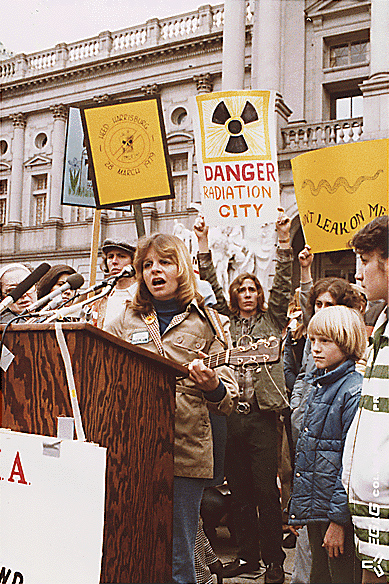
Except wind power is pretty useless without storage, isn’it? Which is precisely the reason why we’re now still building these natural gas power stations.
Interesting, what neither USA nor EU cannot do due to “hurdles and licensing”, Russia somehow can, and it plans to build 11 new reactors by 2030.
Fortunately, Germany’s transition to Russian gas will provide a stable source of funding for these investments ![]() Actually, Russia’s long-term strategy in this particular field seems to be exemplary rational from both scientific and economic point of view (plus they recently loosened ban on GMO crops).
Actually, Russia’s long-term strategy in this particular field seems to be exemplary rational from both scientific and economic point of view (plus they recently loosened ban on GMO crops).
Yet, there were only two nuclear accidents with serious external consequences. One in politically and economically bankrupt Soviet republic, one in 50-years old power plant built in seismic zone. Reversing your argument, there’s ~450 operating civilian nuclear reactors in the world and 99% of them had no safety issues ever and the total number of fatalities from these accidents does not exceed ~50.
At the same time, dam failures have just killed 217 people in Brazil (2019), 75 in Russia (2009) and 171’000 in China (1975), just to enumerate the largest ones. Coal ash piles (also slighly radioactive) contaminate thousands of hectars, polluting ground and water. Same applies t oil and gas drilling sites. Oh yes, but it’s nuclear power plants that are “deadly”.
I would argue that “less developed places” do not care at all about your concerns and they are, and will be satisfying their energy needs by any means possible, just as Iran or aforementioned Bangladesh does. Just as they do not care about conservative, pseudo-scientific dialectics like “precautionary principle” and successfully invest into Bt brinjal simply to survive.
And as someone who was born in a “less developed” country (70’s Poland) I fully sympathize with their aspirations. The fundamental problem I have with people speaking of “investing into renewables” is that the very definition of “investment” assumes for-profit operations and ROI, which essentially means that there’s a group of already wealthy countries that have developed advanced renewable technology sectors and are now expecting poorer countries to buy these from them. Which is not happening, because the latter don’t run outdated and dirty power plants just because they like to, but because they lack funds for investments.
I guess I’d like to see more of Jonas Salk approach to polio vaccine here and cooperated, international effort on just making clean energy available and affordable to everyone rather than use it as a competitive advantage.
And the rest of the world should help them get one, perhaps one of the Russian floating ones as they are safe, reliable and are mobile. Actually, two Russian VVER reactors in construction are due to go live in 2023 thanks to stable funding provided by German Energiewende.
You should be learning from your neighbour - this is nuclear waste storage in Switzerland. Note the human - there’s a theory that he might be a Greenpeace activist trying to fly a drone into one of the flasks to prove it’s dangerous to fly drones into nuclear plants.
I’m looking at List of nuclear reactors, specifically in China, Changjiang block I-1: construction start April 2010, commercial operation December 2015, so roughly 4.5 years. Actually, even if you look at the ancient ones - like Tihange in Belgium or Blayais in France - plenty of them were build in 4-6 years. Same for Germany.
Construction of Rampion off-shore wind farm in UK took… from 2014 till 2018. Now, that’s way faster as compared to these lousy nuclears, isn’t it? And the whole 72 km2 farm has power of 400 MW. That’s around 20% less than a single block of nearby Dungeness nuclear power plant.
By the way, is DESERTEC operational yet? It’s been 10 years after all…
You aren’t addressing the majority of my points very effectively, still.
Your nuclear barge solution provides 2x35 MW at a cost of 336 M$. And then you have to operate it with a 70 person crew + maintenance, fuel, etc.
Wind power costs 1.2 M$ per 1 MW.
Although wind and solar are intermittent they generally produce more when more power is needed - so financially they are actually MORE attractive than a constant producer.
Of course at SOME POINT this balance will shift - and then we can talk about what is best to fill or reduce those gaps but we aren’t there.
We can discuss if nuclear barges (yay for the mobility, nay for the reliability), hometrainers, or whatever should be part of that effort.
On that front I offer you drawdown.org which has (on shore) wind on spot 2 I think and nukes on spot 20, right around better managed grazing and clean cook stoves. Just to put that into perspective.
Then some of your claims re safety are badly wrong on multiple levels:
No safety issue for 99%?
Absolutely an issue for 100% of them. What you may have meant is that there were no INES (incidents) on 99%. And I would contest even that.
50 Dead?
I don’t know why you keep bringing this up because unless you want to argue against coal (with me???) there really is no point as it is dwarfed by “death through climate”. Apart from that I would prefer the measure of YLL (years of life lost) or DALY (disability adjusted life years) - because that will be important to capture the impact inapprapriate storage will have, particularly on young childs (who are far more susceptible to this) a) because they like to play in nature and ingestvalpha emmitters, and b) because they are still growing and radiation will then fuck with them so much worse.
Sooo, there’s been only these 2 major incidents, and even they caused only 50 dead? So how bad could it possibly get? THIS IS BLATANT MISINFORMATION! And as I’ve said before: on a higher level this makes my alarm bells go into overdrive when I see this being peddled in what should be an honest and constructive discussion. YOU are part of the reason FUD (fear uncertainty and doubt) amounts to a very healthy survival instinct in this context. I am sorry to say, and I’d really like to see you convice me otherwise.
Don’t believe me? Type in “Kyshtym” in your search box. That one alone is 66+200 casualties (to date).
When the discussion turns this disingenious (or blatently incompetent) I have trouble justiying going on at this point.
You of course you are free to rant on that nuclear barges should be shelled out for free to all and sundry like polio vaccinations and ignore that CAPEX is a thing.
And then turn around and turn around and say that Russia is being mean for using its goddamn oil and gas as it chooses to see fit (for example SUPPLYING IT ALL THROUGH THE COLD WAR to the West).
Now I am ardently not a fan of Putin (and let me reiterate: I am all for cramming the EU chock full of wind power, and DESERTEC the fuck out of MENA if you like), but the guy will not live forever and a unnecessarily (and a good bit IS necessary) and ineffective confrontational attitude is not going to pave a path to a happy geopolitical end to this.
Let me add that I in no way want to diminish Poland’s precarious situation in this context. I am well aware of that and I am very happy they got those Leos for cheap, and the EU has pushed a deal on Russia that allows full internal redistribution of gas without them having as much as a wimper to say on the matter. Those are effective geopolitical steps.
Proposing to use less resources to build out cheap and effective renewables and instead pouring them into a few nukes in Russia’s periphery strikes me as shooting yourself in the foot with one hand and in the knee with the other.
I’m sad to say Poland does not deserve, nor can it afford this kind of “advocacy”. Sadly this is but one episode in a series of such blunders in my opinion - and you’re not helping, if you allow me to be frank here.
That why they’re building these two Russian VVR. The barge wasn’t really a serious proposal, more of a poke.
Oh, biomass on the first place? They forgot to mention that due to low local supply power plants in Europe are currently buying it from as far as Siberia, transporting it over distance of ~7000 km and the “biomass” are actually perfectly healthy taiga forests that are cut down only to be burned. I only have Polish paywall sources for that but “Dalkia” power plant in Łódź is importing 7’000 tons of such wood from Republic of Komi each month, since all local biomass output (actual wood waste, straw etc) is exported… to Germany.
This process is now destroying Russian taiga at the speed that is a grave concern to environmental activists there but you know, there’s demand and money to be made to help European Greens demonstrate how good they are.
Or coconut waste transported by ships from Pacific or Africa, with the same Greenpeace people who in 2000’s lobbied for mandatory minimum biomass quote in EU complaining today about diesel emissions from ship freight.
Putin, or to be more precise, the kleptocracy he created, doesn’t really need nor care about fans in Europe. Putinversteher is the attitude that is perfectly sufficient for their tactical goals.
How do you precisely distinguish “unnecesary” from “necessary”? You just had a Russian with FSB-issued fake passport assassinate a German citizen in Berlin. In 2006 you had Kovtun and Lugovoy leave radioactive polonium traces in half of Germany, as they traveled to London to kill Litvinenko. In 2016 you had Russian foreign minister and German-language propaganda stations incite social unrest based on entirely false story of Lisa F.
Yet none of these caused slightest diplomatic action from German government, which apparently thinks that would be “unnecessarily confrontational”. Russian TV is making fun of Angela Merkel, I’ve seen it myself!
I happen to know Russia pretty well as I’ve been going there frequently for the last 20 years and it’s a great country that is unfortunately ruled by people of criminal background, literally. These people consider lack of reaction not as kindness but as a weakness, and will only escalate hostile actions, simply because they can. Do you remember when Turkey shot down Russian Su-24 over Turkish territory after Russian army violated their airspace for months? Do you think that was “unnecessarily confrontational”? Well, what happened next must have been truly surprising for any German leader: Russians stopped violating Turkish airspace! And shortly after became the best pals with Erdogan, because this is how you earn respect with gangsters.
Kyshtym was a military plutonium production site. In such case your FUD is missing Hiroshima and Bikini.
And still, 66 is less than 171’000 killed in China dam disaster. And also less than 200+ killed in Brazil dam disaster in 2019.
Also this year: At least 10 killed in explosion at gas factory in central China.
I’m not saying Russia is “being mean” for building nuclear reactors, quite the opposite - I respect their nuclear industry quite a lot. I said it’s German Energiewende that is stupid as it shuts down German reactors, switches to Russian gas and kind of pretends that it has just heroically saved the world from nuclear holocaust, while a dozen of new reactors are being built in Russia. This is just like outsourcing all industrial production to Asia and saying “look, we emit no CO2 in Europe now!”.
Also as you mention Cold War oil and gas supplies, this may come as a surprise but they did not supply these for free. You should probably also read about the famous rope metaphor frequently employed by Soviet leaders.
Poland’s precarious situation is 100% responsibility of its populist government and, sorry to say that, conservative and under-educated population. Germany is scared to death of “radiation” (except for FSB polonium, that is) and prefers “safe and clean gas”, Poland is both scared and unwilling to spend money to invest into nuclear, wind or solar because “our grandfathers used coal” attitude.
That’s precisely why I’m living in the UK now.
